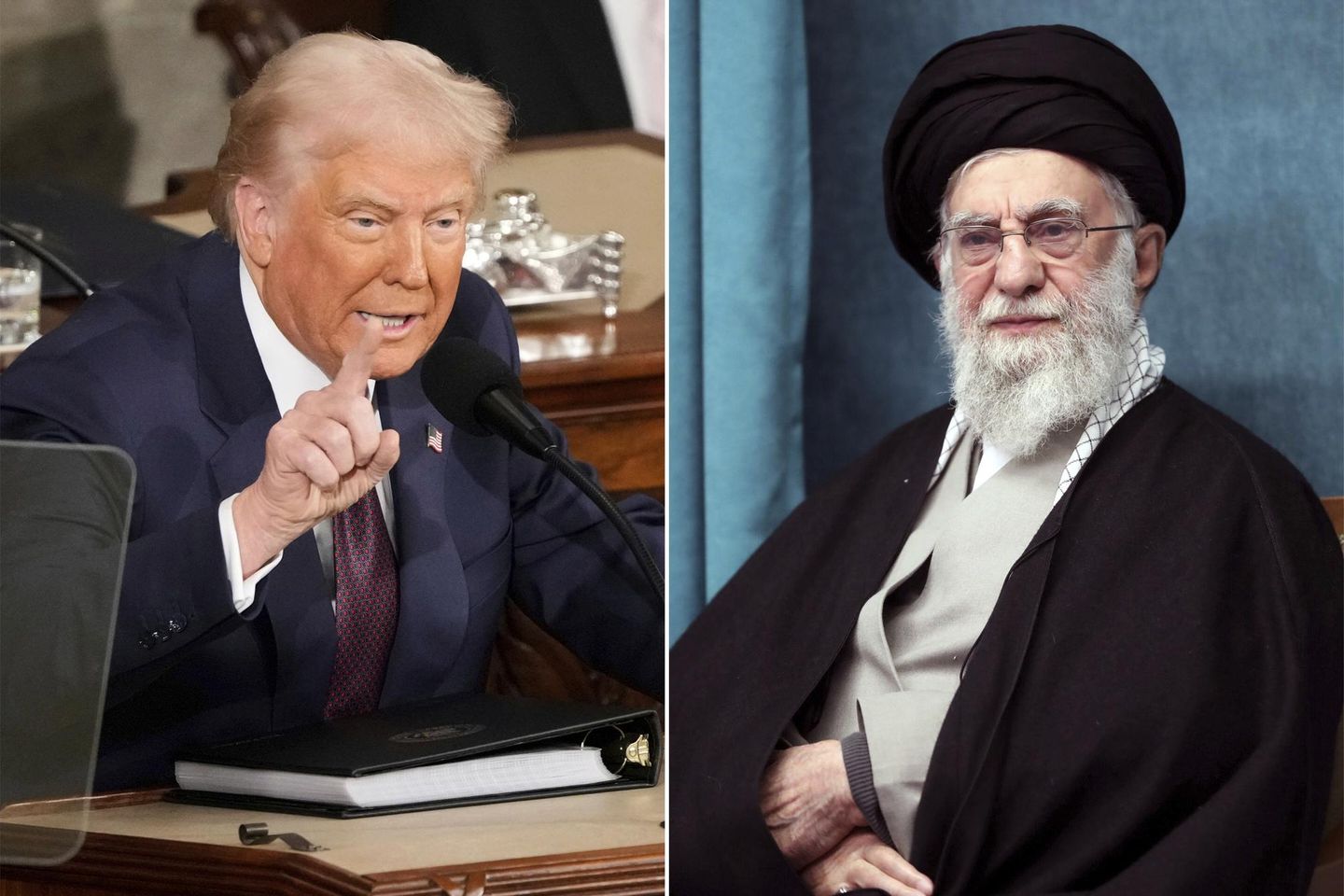
DUBAI, United Arab Emirates (AP) — Iran ’s foreign minister said Tuesday he’ll meet with U.S. envoy Steve Witkoff in Oman for the first negotiations under the Trump administration seeking to halt Tehran’s rapidly advancing nuclear program as tensions remain high in the Middle East.
Speaking to Iranian state television from Algeria, Abbas Araghchi maintained the talks would be indirect, likely with Omani mediators shuttling between the two parties. U.S. President Trump, in announcing the negotiations on Monday, described them as being direct talks.
Years of indirect talks under the Biden administration failed to reach any success, as Tehran now enriches uranium up to 60% purity – a technical step away from weapons-grade levels. Both the U.S. and Israel have threatened Iran with military attack over the program, while officials in Tehran increasingly warn they could potentially pursue a nuclear bomb.
“Our main goal in the talks, is naturally restoring rights of people as well as lifting sanctions and if the other side has a real will, this is achievable, and it has no relation to the method, either direct or indirect,” Araghchi said. “For the time being, indirect is our preference. And we have no plan to alter it to direct.”
Araghchi’s comments left space for Iran to potentially hold direct talks eventually with the Americans. Such talks aren’t known to have been held since the Obama administration.
There was no immediate acknowledgement from the U.S. that Witkoff would lead the American delegation.
After Trump’s comments on the talks went public, Iran’s ailing economy suddenly showed new signs of life. Its rial currency, which hit a record low of over 1 million rials to the dollar, rebounded Tuesday to 990,000 rials. The Tehran Stock Exchange separately rose some 2% on the news.
Iran’s economy has been severely affected by international sanctions, particularly after Trump unilaterally withdrew America from Tehran’s nuclear deal with world powers in 2018. At the time of the 2015 deal, which saw Iran drastically limit its enrichment and stockpiling of uranium in exchange for lifting of international sanctions, the rial traded at 32,000 to the dollar.
Economic upheavals have evaporated the public’s savings, pushing average Iranians into holding onto hard currencies, gold, cars and other tangible wealth. Others pursue cryptocurrencies or fall into get-rich-quick schemes.
The negotiations Saturday come after Trump wrote to Iran’s Supreme Leader Ayatollah Ali Khamenei, trying to jumpstart direct talks between Tehran and Washington. Khamenei came down hard on Trump in February and warned talks “are not intelligent, wise or honorable” with his administration.
Meanwhile, Trump is continuing an intense airstrike campaign targeting the Iranian-backed Houthi rebels in Yemen, the last force in Tehran’s self-described “Axis of Resistance” able to attack Israel after other militant groups were mauled by Israel during its war on Hamas in the Gaza Strip.
Asked about Trump’s mention of planned direct talks between the U.S. and Iran, Kremlin spokesman Dmitry Peskov said that Moscow welcomes them, adding that “we support settling the issue of the Iranian nuclear dossier by political and diplomatic means.”
“We are aware that certain contacts, both direct and indirect, are planned in Oman and we can only welcome them as they could lead to the de-escalation of tensions around Iran,” Peskov said in a conference call with reporters. His remarks come as Trump is trying to negotiate a separate peace deal between Russia and Ukraine, talks that also have happened in the Middle East, in Saudi Arabia.
___












